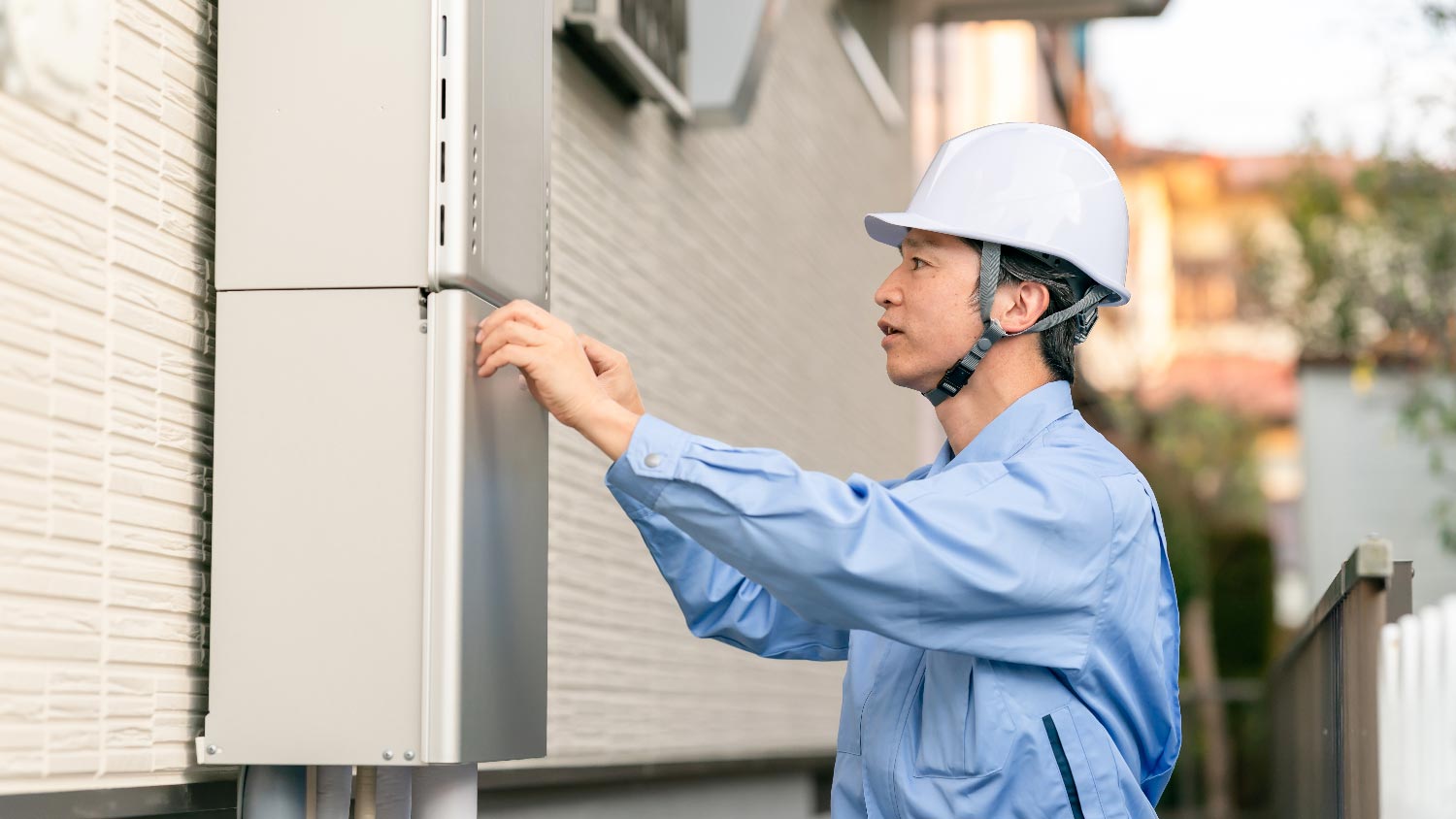What Do Water Heater Anode Rods Do?
The anode rod helps prolong the life of standard hot water heaters by preventing corrosion in your heater's storage tank


The anode rod is one of the most essential parts of a standard hot water heater because it helps to prevent tank corrosion and rusting. But the life expectancy of your anode rod is often far shorter than that of the hot water heater itself. That’s why you must check it regularly and replace it every few years.
What Is an Anode Rod?
An anode rod is a major component of your water heater that runs down the center of your tank. It’s a steel wire with aluminum, aluminum/zinc alloy, or magnesium wrapped around it. These materials help prevent corrosion in your water heater.
What Does the Anode Rod Do?
There’s no question about it: your water heater tank is a pretty punishing environment. There’s water. There’s heat. There’s a metal storage tank. And those are perfect conditions for rust and corrosion.
The anode rod helps counteract those conditions and extends the life and performance of your water heater. In fact, its purpose is to wear itself down to maintain the tank. As the rod erodes, it releases electrons into the water heater tank, which helps slow or prevent corrosion in the tank.
That’s why the anode rod generally fails before the water heater does. And that’s also why plumbers often call the anode rod the “sacrificial lamb” of your hot water heater.
Why Are Anode Rods Important?
Anode rods are crucial to your water heater’s performance. For one, they protect your water heater from corrosion by attracting damaging elements like minerals and sediment. But they also help extend the life of your water heater by helping to keep it maintained.
Since water heaters are vulnerable to corrosion, it’s important to inspect your anode rod regularly.
How Often Should the Anode Rod Be Replaced?
There are a lot of things that can affect how long your anode rod lasts, including how much hot water your household uses, what kind of water you have, how hot the water is, how well the system is maintained, and what type of rod you have.
The chemistry of your water will have a particularly significant effect on how long the rod lasts. The more acidic your water is, for instance, the more quickly the rod is likely to erode.
The material your rod is made of also determines how long it lasts. Most anode rods are made of magnesium, which corrodes quickly. So if you have hard water or high levels of calcium, magnesium, or other dissolved minerals in your water, you should avoid magnesium anode rods. And if your hot water heater already has a magnesium rod, you’ll want to inspect—and replace—it more frequently in hard water conditions, potentially as often as every few years.
Though not as common as magnesium, aluminum anode rods are a solid choice, especially if you have hard water. They’re relatively inexpensive and tend to last longer than the standard magnesium rod.
And then there’s the electrical, or “non-sacrificial,” anode rod. This kind of rod is designed not to rust at all. Instead, it sends electrical impulses into the water heater tank, providing the same protection as magnesium and aluminum rods without corroding. Though electrical rods may be more expensive, they’re also the longest-lasting option, surviving for the entire lifespan of your water heater.
Checking and Replacing Anode Rods
Flushing and draining your water heater at least once or twice a year will not only protect the tank from corrosion but will also slow the rusting and corrosion of your anode rod.
You should also routinely visually inspect your anode rod and your hot water itself. Collecting hot and cold water samples in a clear glass so that you can compare the two for signs of rust and sediment will help you detect signs that your tank may be beginning to erode.
If the corrosion hasn’t advanced, you can probably solve the problem and extend the life of your hot water heater by replacing the anode rod. This isn’t generally something you should attempt on your own, though, because removing the rod requires special tools that most people don’t have. In addition, the rods require a lot of overhead clearance. Unless you’re a plumber with a lot of experience, it’s easy to damage the new rod or the water entry lines that are usually located close to the anode rod at the top of the water heater tank.
How Much Does It Cost to Replace an Anode Rod?
The good news, though, is that it generally only costs around $20 to $50 for a replacement rod, according to HomeAdvisor, and between $50 and $150 per hour to hire a professional for this relatively quick project. That’s quite a bargain considering that the average cost to replace a water heater can range from $800 at the low end to more than $1,500 at the high end, according to HomeAdvisor, depending on the condition of your plumbing and the type of water heater you choose.
The Takeaway
The anode rod is the unsung hero of the traditional hot water heater. And protecting your tank and preserving the life and performance of your hot water heater means keeping a close eye on your anode rod and replacing it quickly when it fails.














